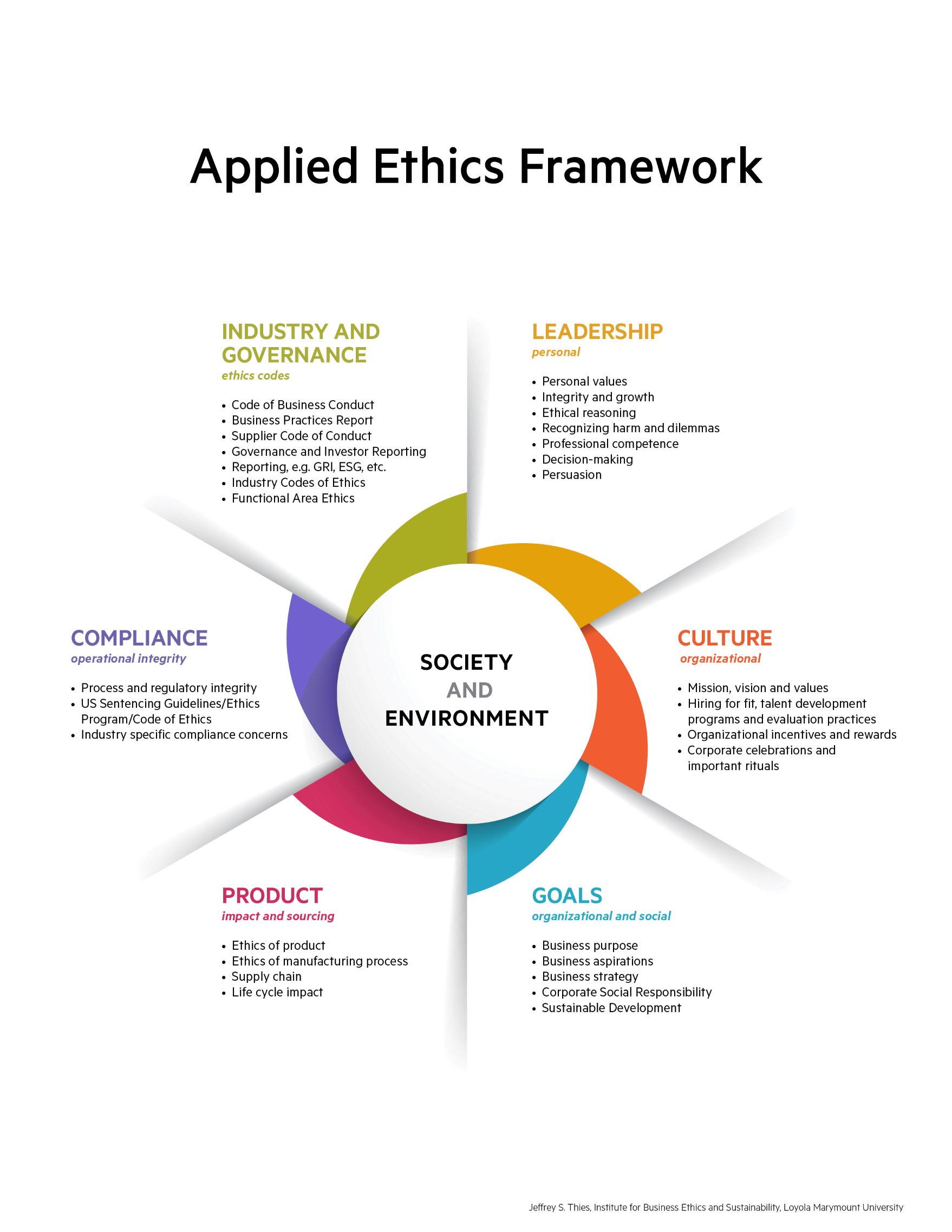
The applied ethics framework is a tool used at LMU to identify the professional practice of applied business ethics. This framework defines business ethics as the implementation of integrated operational practices within the business enterprise. In this light, ethical business practice is the professional responsibility for effective personal and organizational application of these practices.
Overview
- Business – and the discipline of business ethics – is informed by and responsible to society and the environment.
- The framework highlights six dimensions of practice that are understood to be integrated and iterative – each informing the other in an ongoing practice of implementation and reflection.
- As an integrated model, there is no suggestion of hierarchy or priority for any area.
- It suggests that values and purpose for positive impact, internally and externally, should be consistent and aligned in each dimension.
Dimensions
- Leadership – the individual dimension of values, personal integrity and moral courage, and the leadership skills to identify ethical issues and dilemmas, apply ethical reasoning to business issues, and persuasively communicate values and responsibilities within and beyond the organization.
- Culture – the organizational dimension of mission and values, highlighting talent acquisition and development practices, alignment of incentive and reward programs with mission and values, and the reinforcing of these values in organizational celebrations and rituals.
- Goals – the organizational and social statement of business purpose, linked to strategy and engagement with stakeholder capitalism, corporate social responsibility and sustainable development.
- Product – awareness of and responsibility for the ethics of the product or service itself, including supply chain and life-cycle impact throughout.
- Compliance – the dimension of operational and regulatory integrity of organizational processes, including ethics codes, programs, structures and auditing mechanisms that comply with US Sentencing Guidelines as well as industry specific compliance concerns.
- Industry and Governance – the dimension of codes of conduct, measurement and reporting processes, and related responsibilities to board and investor reporting.
Summary
Business ethics is the professional and organizational discipline of integrated practices. At the center of these practices is the responsibility of business to society and the environment, understanding that business has the ability – and the responsibility – to be a force for good in the global community.
For more information, contact us at ibes@lmu.edu.